Xarelto 10mg Tablet (Rivaroxaban 10mg)
$84.00 – $228.00Price range: $84.00 through $228.00
| Country of Origin | india |
|---|---|
| Dosage Form | Tablets |
| Generic Name | Rivaroxaban |
| Indication | Treatment and prevention of Blood clots |
| Packaging | 7 tablets in 1 strip |
| Manufacturer | Bayer Pharmaceuticals Pvt Ltd |
| Composition | Rivaroxaban (10mg) |
| Xarelto 10mg Tablet (Rivaroxaban 10mg) | |||
| Pack Size | Price | Price/Unit | Add To Cart |
| 14 Tablet/s | $84.00 (6/unit) | $6 | |
| 28 Tablet/s | $160.00 (5.71/unit) | $5.71 | |
| 42 Tablet/s | $228.00 (5.43/unit) | $5.43 | |
What is Xarelto used for?
When you cut yourself or are injured, at first, you will bleed from the wound, but then bleeding stops as a blood clot or thrombus forms and plugs the wound. Blood clot formation is a normal response to blood vessel injury that is designed to stop excessive bleeding, a process known as haemostasis. However, if a blood clot forms inside an intact blood vessel, which is known as thrombosis, there is a risk that it can break off and travel through the circulation. If the thrombus becomes lodged in the heart, brain, or lungs, this is known as a thromboembolism. Xarelto tablets 10mg are used to treat and prevent thrombosis in conditions where there is a risk of thromboembolism, which could be life-threatening.
Thrombosis risk factors and danger signs
Some conditions are known to increase your risk of thrombosis. For example, heart conditions where blood flow is disturbed or slows down, such as atrial fibrillation (irregular heartbeat) and congestive heart failure (the heart cannot pump efficiently). Under these conditions, blood can pool, which increases the risk of blood clot formation. Other conditions include hypertension (high blood pressure), diabetes mellitus, and having had a stroke or a transient ischaemic attack (mini-stroke). Also, increasing age over 75 years, using oral contraceptives and smoking all increase the risk of thrombosis.
Xarelto tablets 10mg are used to treat and prevent deep vein thrombosis and pulmonary embolism. They are also used to prevent venous thromboembolism following hip or knee replacement surgery, and to prevent stroke caused by thromboembolism in patients with atrial fibrillation.
Deep vein thrombosis
When blood clots form in the veins, it is called venous thrombosis or deep vein thrombosis (DVT) because they usually occur in the deep veins of the leg or pelvis. Risk factors for DVT include anything that prevents blood circulating efficiently. For example, extended periods of immobility, such as sitting on a plane, or following surgery. These clots can break loose and can become lodged in the lungs, causing a pulmonary embolism (PE) or in the brain, causing a stroke. Signs of a DVT are pain, swelling, change of colour, and warmth in the affected area, such as a blood clot in the leg.
Venous thromboembolism following surgery
Venous thromboembolism (VTE) is the type of thrombosis that can happen following hip or knee replacement surgery. This is because of the increased risk of blood clots forming due to being immobile after surgery.
Atherosclerosis
A clot can form in an artery due to a condition called atherosclerosis, where cholesterol deposited in the artery wall (known as plaque) breaks up and triggers thrombosis. The thrombus can travel to the coronary arteries and block the blood supply to the heart tissue causing myocardial infarction (heart attack), or it can travel to the brain and cause a stroke.
Coagulation and thrombosis
Coagulation is the process that changes free-flowing blood to a solid that then develops into a clot. It involves several components, including blood platelets and proteins in the blood called coagulation factors. The coagulation cascade is the interaction of a series of coagulation factors, which are mostly enzymes. The formation of the protein fibrin completes the coagulation cascade. Fibrin combines with clumps of aggregated platelets generating plug of fibrin that becomes a blood clot or thrombus.
The coagulation cascade is activated by injury or trauma to a blood vessel that becomes exposed (known as the extrinsic pathway), or by internal damage to a blood vessel wall (intrinsic pathway).
Related Product
How does Xarelto work?
Xarelto tablets 10mg contain rivaroxaban, an anticoagulant that is used to treat and prevent thrombosis. Rivaroxaban in Xarelto tablets 10mg works by blocking the coagulation cascade and acts as a reversible, direct, and highly selective inhibitor of clotting factor Xa.
Factor Xa is a serine protease, which is an enzyme that converts prothrombin to its active form thrombin. This is the final coagulation factor in the cascade that results in the generation of fibrin needed for blood clot formation. Activation of Factor Xa is the common link in the coagulation cascade between the intrinsic and the extrinsic pathways. Therefore, inhibition of Factor Xa is an ideal and effective target for preventing thrombosis.
Several of the coagulation factors need Vitamin K as a cofactor in their production. These are the target of other anticoagulants like warfarin, which can take time to become effective and may require dose adjustment, as everyone responds differently. Rivaroxaban in Xarelto tablets 10mg is fast-acting with maximum effect within 3 to 4 hours. A high proportion of rivaroxaban is absorbed when taken orally, resulting in good bioavailability as most of its activity is not lost by being metabolised in the liver on its way through. Also, it does not need vitamin K, and is it effective at a fixed dose.
Rivaroxaban in Xarelto tablets 10mg has no direct effects on platelet aggregation, which is another component of the blood clotting process, but indirectly inhibits platelet aggregation, which is induced by thrombin produced during the coagulation cascade. By inhibiting Factor Xa, Xarelto prevents thrombin generation, which blocks the formation of a blood clot. This is achieved at doses that do not interfere with haemostasis, which is the normal control of bleeding.
What does Xarelto contain?
Xarelto tablets 10mg contain the active ingredient rivaroxaban, an inhibitor of coagulation Factor Xa, used to treat and prevent the formation of blood clots (thrombosis). They also contain microcrystalline cellulose, croscarmellose sodium, lactose monohydrate, hypromellose, sodium lauryl sulfate, magnesium stearate, hypromellose, lactose, magnesium stearate, sodium lauryl sulfate, iron oxide red, macrogol 3350, titanium dioxide.
What are the side effects of Xarelto?
Most medications have some side effects, but they are not experienced by everyone. Some side effects are commonly experienced when taking Xarelto tablets 10mg, but others are not so common, and you should discuss any problems or concerns with your primary care physician.
Common side effects when taking Xarelto include headache, dizziness, anaemia, haemorrhage (bleeding from the eyes, gums, rectum, and intestines) and haematoma (blood blisters), contusion (bruising), epistaxis (nosebleeds), coughing up blood (Haemoptysis), haematuria (blood in the urine), nausea, abdominal pain, indigestion (dyspepsia), hypotension (low blood pressure), itching (pruritus), rash, peripheral oedema (fluid retention).
When should Xarelto not be used?
Have a talk with your primary healthcare physician before taking Xarelto tablets 10mg so that you have a full understanding of what this medicine is for and how to use it. There are some reasons for not taking a medication; these are called contraindications, and for Xarelto you should consider the following before taking Xarelto:
- Have you ever had an unusual reaction or an allergy when taking Xarelto?
- Are you pregnant or breastfeeding?
- Do you have any problems with your kidneys or your liver?
- Do you have any liver disease associated with increased blood coagulation?
- Do you have any blood disorders that affect normal blood clotting?
- Do you have any condition that can increase the risk of excessive bleeding such as a gastrointestinal ulcer, a malignant tumour, a lung condition called bronchiectasis, a history of bleeding from the lungs, or severe uncontrolled high blood pressure?
- Do you have a prosthetic heart valve?
What medications interact with Xarelto?
Some medicines interact with Xarelto tablets 10mg and may affect the way it works, or are affected by Xarelto or increase side effects; you should discuss possible interactions with your primary care physician. These may include ritonavir for HIV, the antifungal ketoconazole), other anticoagulants like heparin or warfarin, inhibitors of platelet aggregation like clopidogrel, heparin or warfarin, inhibitors of platelet aggregation like clopidogrel and NSAIDs like aspirin, the antiinfective rifampicin, the anticonvulsives carbamazepine and phenytoin, the sedative phenobarbital the herbal remedy St. John’s Wort.
If other medications may interact with Xarelto, your doctor will discuss these with you.
How should Xarelto be taken and for how long?
You should take your Xarelto tablets 10mg swallowed whole with a glass of water, with food, or crushed into food if swallowing is difficult. The dose you take, how often (once or twice daily) and for how long depends on what you are being treated for and your doctor’s recommendation. You should continue to take your Xarelto tablets 10mg for as long as recommended by your doctor, which may be for several weeks or months.
Missed dose of Xarelto
If you miss a dose of Xarelto tablets 10mg take it as soon as you remember, unless it is time to take the next dose, then skip the missed dose. Do not take a double dose.
How should Xarelto be stored?
You should store your Xarelto tablets 10mg below 25°C in a cool dry place.
Be the first to review “Xarelto 10mg Tablet (Rivaroxaban 10mg)” Cancel reply
Related products
Angina Pectoris Anti-Anginals
Angina Pectoris Anti-Anginals
Angina Pectoris Anti-Anginals
Angina Pectoris Anti-Anginals
Angina Pectoris Anti-Anginals
Heart & Blood Pressure
Angina Pectoris Anti-Anginals
Angina Pectoris Anti-Anginals
Angina Pectoris Anti-Anginals
Angina Pectoris Anti-Anginals
Angina Pectoris Anti-Anginals
Angina Pectoris Anti-Anginals

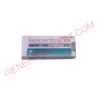
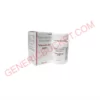
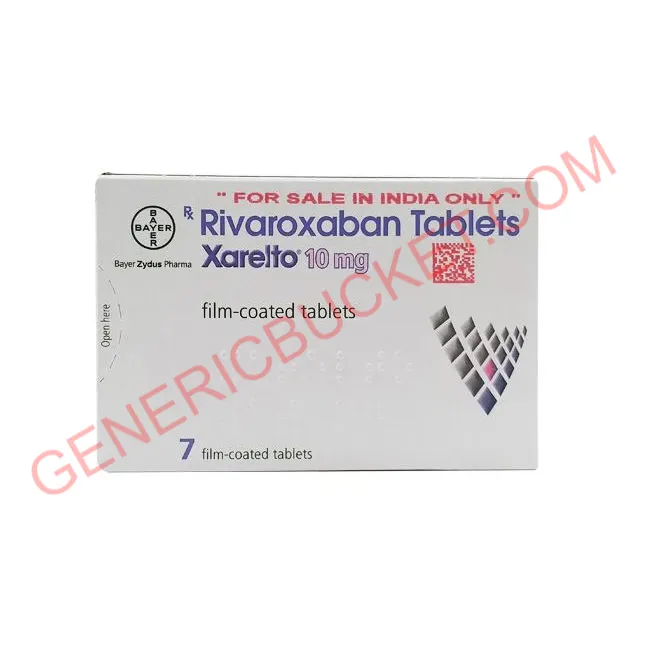

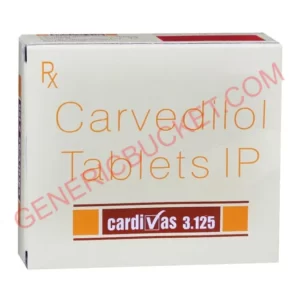
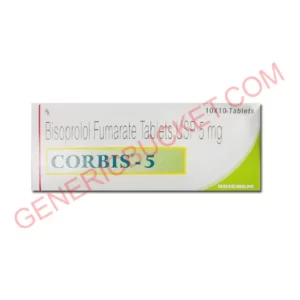
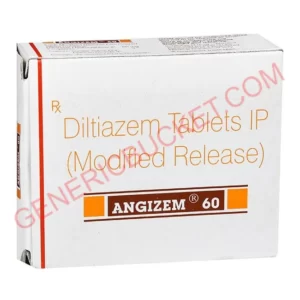
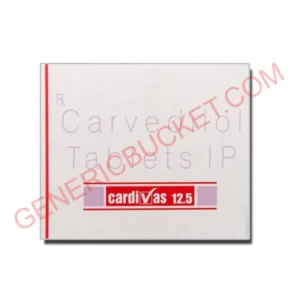
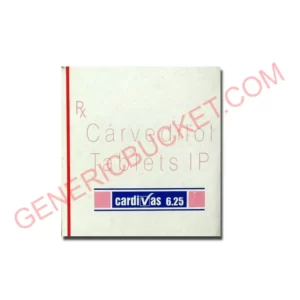
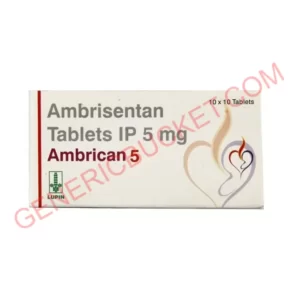
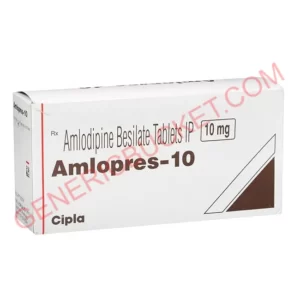
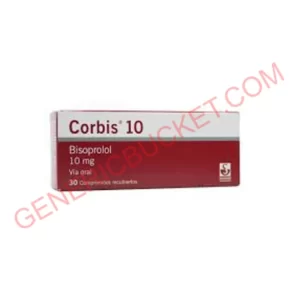

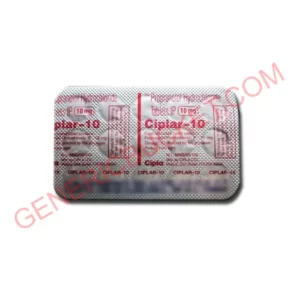

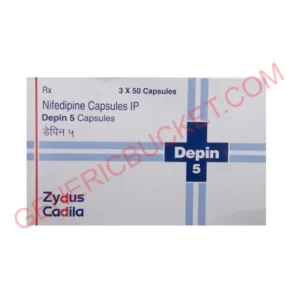
Reviews
There are no reviews yet.